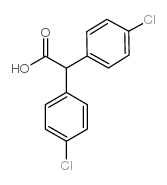Induction of tolerance in macrophages by cholera toxin B chain.
V Burkart, Y Kim, M Kauer, H Kolb
Index: Pathobiology 67(5-6) , 314-7, (1999)
Full Text: HTML
Abstract
Model systems of human type 1 diabetes have revealed an important role of cellular immune reactions involving macrophages and T cells in the destruction of autologous insulin-producing pancreatic beta cells. Recently, the cholera toxin B chain (CTB) was found to suppress T cell-dependent autoimmune diseases including autoimmune diabetes of nonobese diabetic mice. Therefore, we tested the hypothesis that CTB exerts much of its immunomodulatory activity by targeting macrophages. These studies are reviewed here. Cells of the human monocyte line Mono Mac 6 were exposed to CTB and subsequently tested for proinflammatory immunoreactivity in response to challenge with endotoxin (LPS from Escherichia coli, 10 ng/ml for 5 h). Incubation of monocytes with CTB (10 microgram/ml) suppressed a later proinflammatory response to LPS as demonstrated by suppression of TNFalpha release from 6.7 +/- 0.7 ng/ml in cultures without CTB preexposure to 1.8 +/- 1.1 ng/ml in CTB-pretreated cells (p < 0.001). In contrast, the release of IL-10 remained inducible after CTB pretreatment. RT-PCR analysis showed that the suppression of TNFalpha production occurred at the level of mRNA formation. Control experiments excluded a role of possible contamination of CTB by endotoxin or the intact cholera toxin. Tolerance induction was maximal after 5 h of CTB exposure and persisted for 24 h. The suppressive effect of CTB was dose-dependent and no more recognizable at
Related Compounds
| Structure | Name/CAS No. | Molecular Formula | Articles |
|---|---|---|---|
 |
4,4'-DDA
CAS:83-05-6 |
C14H10Cl2O2 |
|
Mitotane (1-(o-chlorophenyl)-1-(p-chlorophenyl)-2,2-dichloro...
1987-01-01 [Drug Metab. Dispos. 15(2) , 267-9, (1987)] |
|
Oxidation at C-1 controls the cytotoxicity of 1,1-dichloro-2...
1995-05-01 [Drug Metab. Dispos. 23(5) , 595-9, (1995)] |
|
Development of an enzyme-linked immunosorbent assay for the ...
1987-05-01 [Bull. Environ. Contam. Toxicol. 38(5) , 798-804, (1987)] |
|
[The enzymatic degradation of DDT. 6. The fate of the DDT me...
1987-01-01 [Nahrung 31(3) , 253-7, (1987)] |
|
Interaction of structurally similar pesticides with organic ...
1993-08-01 [J. Pharmacol. Exp. Ther. 266(2) , 673-7, (1993)] |